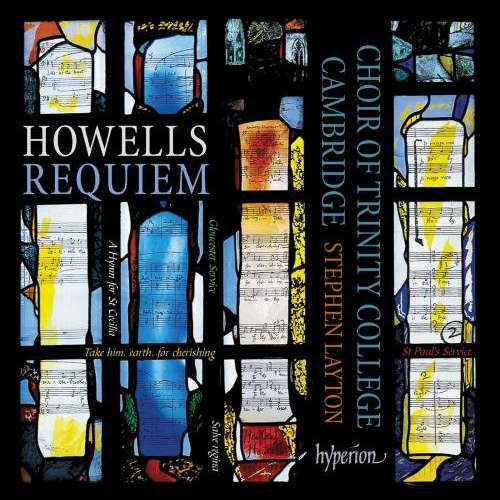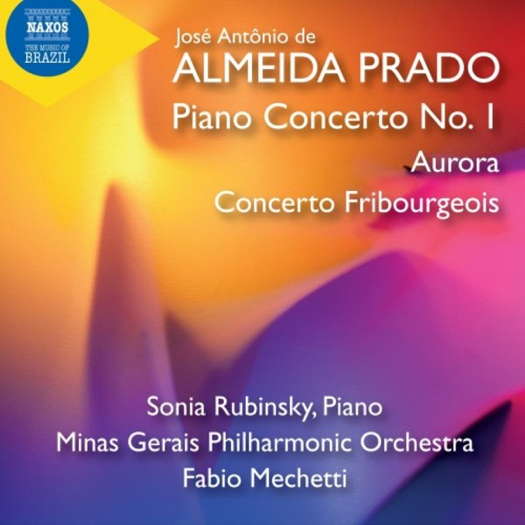 SPONSORED: CD Spotlight. Beautifully Apt - Choral music by Herbert Howells, heard by Robert Anderson.
SPONSORED: CD Spotlight. Beautifully Apt - Choral music by Herbert Howells, heard by Robert Anderson.
All sponsored features >>

Primitive Brazilianness
Music for piano and orchestra by José Antônio de Almeida Prado, heard by GERALD FENECH
'Beautifully recorded and annotated.'
In Almeida Prado's words: 'A Scandal'. This was the expression the composer used when he wanted to refer to something extraordinarily good. José Antônio de Almeida Prado (1943-2010) was a man of superlative gifts, a musician with a solid training behind him, a brilliant composer with an intensely personal language, and a pianist and improvisor of dazzling ability.
Born in Santos in the state of Sao Paolo, Brazil on 8 February 1943, the young José Antonio discovered the beauty of music by listening to his sister Tereza Maria playing the piano. Indeed, at the age of seven he was already writing short pieces. In a short time he was already having lessons with Lourdes Joppert, and he later became a pupil of renowned composer and pianist Dinorah de Carvalho. Having reached age fourteen, she arranged for him to study with leading composers Osvaldo Lacerda and Camargo Guarnieri, who were responsible for launching Almeida Prado on his career.
Despite his respect for these composers' works, Almeida Prado wanted to seek new paths, and after spending six years working with Guarnieri, the composer started taking a keen interest in the compositional language of such names as Stockhausen, Boulez and Ligeti. In 1969 his cantata Pequenos funerais cantantes won him enough money to enable him to go to Paris and further his musical vocabulary by studying with Nadia Boulanger. The mysticism of Oliver Messiaen also had a profound influence on his musical style. Following this Parisian interlude his works matured, acquiring their own unique perfumes and perspectives from sonorities rooted in a primitive Brazilianness, and in the multicoloured natural beauty of his native country, earning him further accolades and recognition.
In Aurora (Dawn) (1975) the composer employs his newly developed 'transtonality' to radiant effect, while the Concerto Fribourgeois (1985) features a collage technique that pays homage to Bach, Beethoven and Brahms.
Listen — Almeida Prado: Moto perpetuo (Concerto Fribourgeois)
(track 18, 0:38-1:38) © 2020 Naxos Rights (Europe) Ltd :
In the Piano Concerto No 1, Almeida Prado explores a cogent structure in which the soloist opens up, rips apart or transforms the theme and variations, in a way that is both magnificently grand and luminous. This wonderful piece was composed between 1982-83. The soloist and the composer had a deep admiration for each other, and this is clearly evident in Rubinski's interpretative qualities and nuanced virtuosity that reveal the composer's sophistication of his piano writing. Synaesthetic counterpoint perfumes the work, betraying new layers in Almeida Prado's complex writing.
Listen — Almeida Prado: Heróico, épico (Piano Concerto No 1)
(track 2, 2:04-3:03) © 2020 Naxos Rights (Europe) Ltd :
Fabio Mechetti's splendid conducting matches Rubinski's awesome artistry, and together they make the music dance symbiotically to glorious harmonies. Off the beaten track, yes, but still hugely imaginative and innovative scores by a composer who, ten years after his demise, is still waiting for a decent appraisal. Beautifully recorded and annotated.
Copyright © 23 August 2020
Gerald Fenech,
Gzira, Malta

CD INFORMATION - ALMEIDA PRADO: WORKS FOR PIANO AND ORCHESTRA



